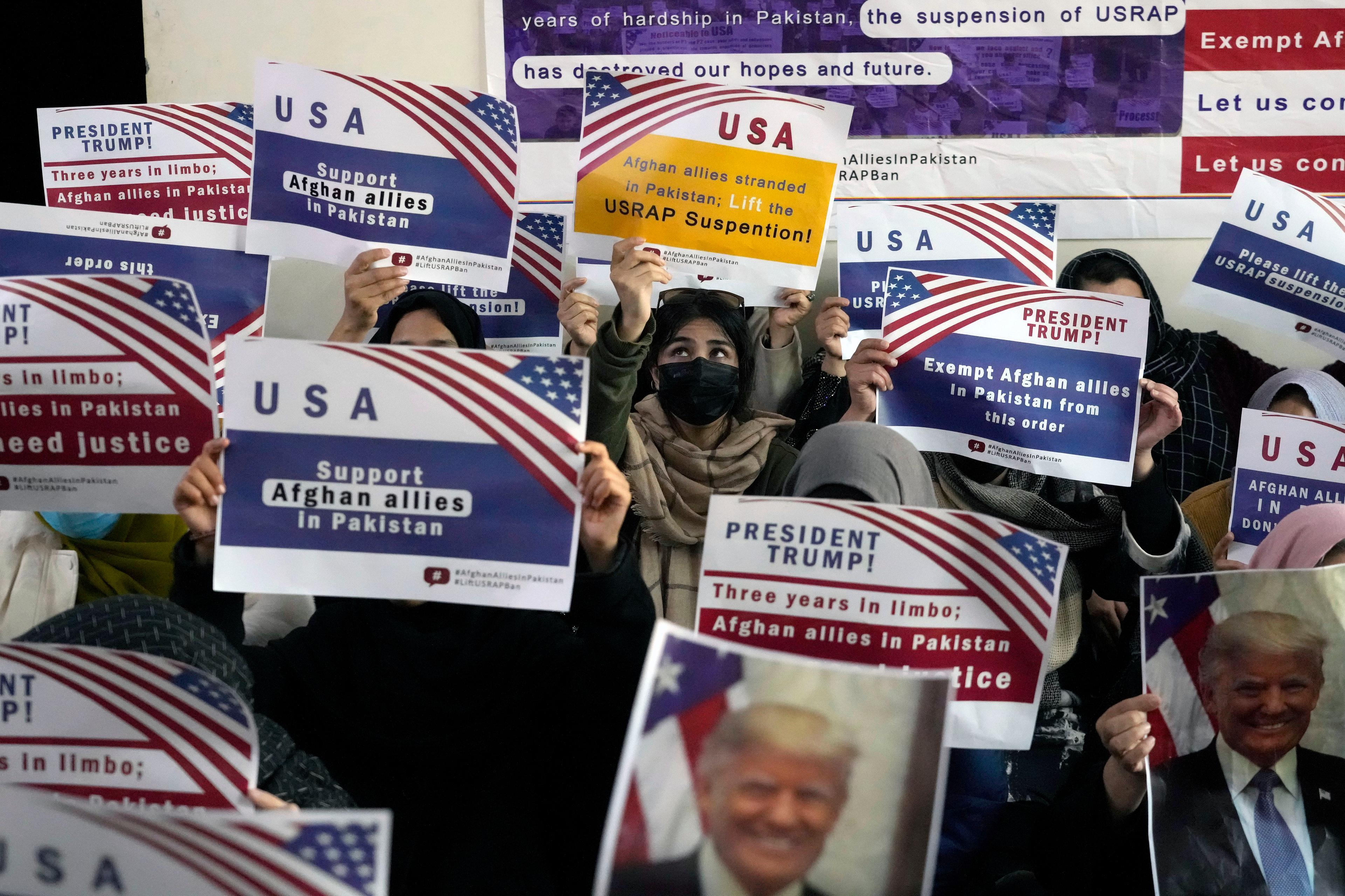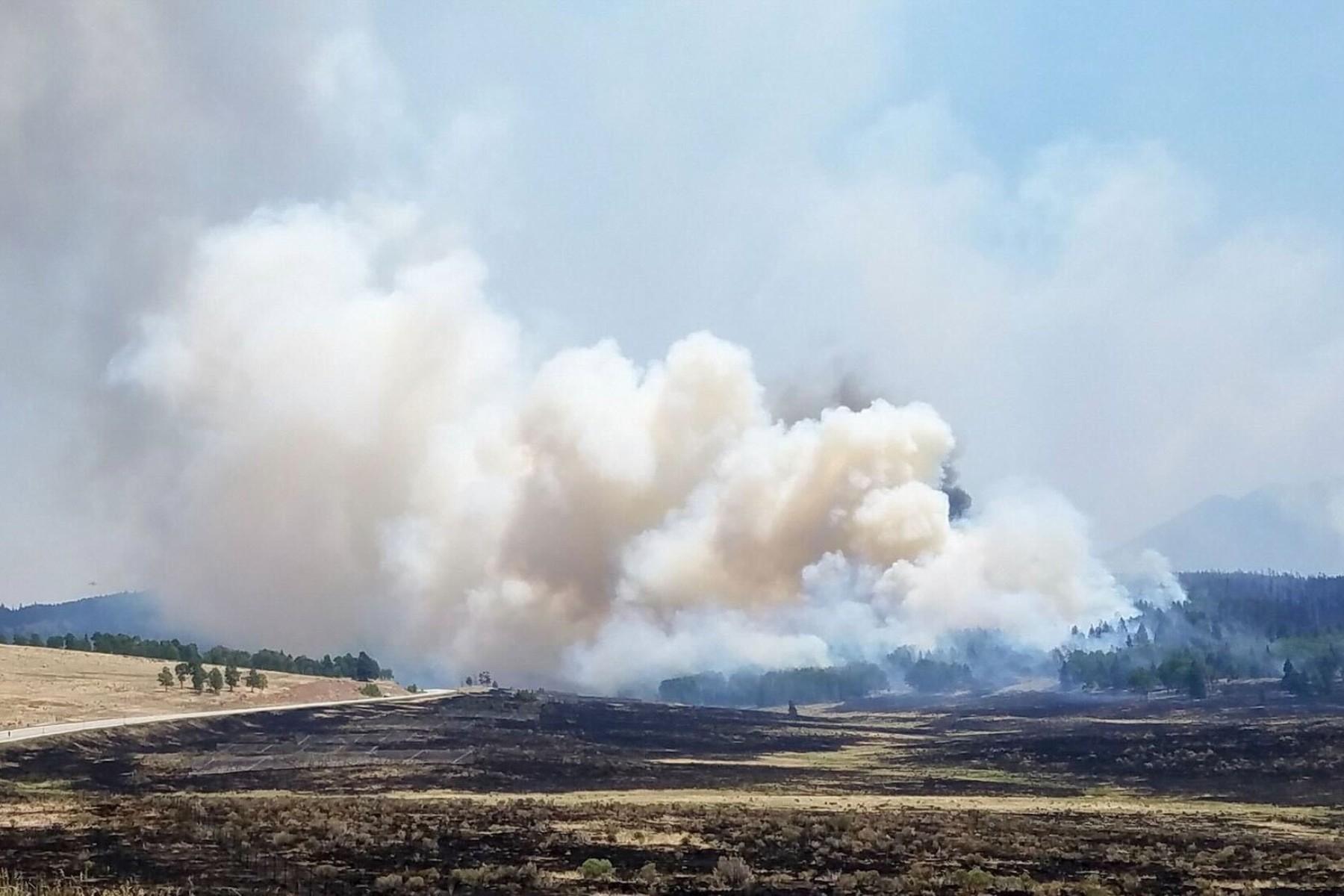
One of President Donald Trump’s first moves to begin his second term was an executive order suspending refugee resettlement, a move that stranded thousands of refugees cleared to move to the U.S., many of whom already had plane tickets.
The order halts admissions into the country “until such time as the further entry into the United States of refugees aligns with the interests of the United States."
Ron Buzard, executive director of the African Community Center of Denver — one of Colorado’s official resettlement agencies — spoke with Colorado Matters senior host Ryan Warner about what the order means for their operations and what he says to those who don’t think the United States has the means to help those abroad.
This interview has been edited for length and clarity.
Ryan Warner: What does this executive order mean for the refugees whom your organization had identified for resettlement but haven't yet made it to the U.S.?
Ron Buzard: It's beyond disappointing. It's devastating for the refugees themselves. They have gone through legal processes, a very orderly process, gone through background checks, medical screenings, they're ready to travel.
Warner: They've been vetted, in other words.
Buzard: Vetted Yes, beyond most other immigrant statuses. So yeah, they're now waiting, many of them for travel. Many of them have already received their travel arrangements. They're looking forward to actually achieving that goal, which caused them to leave their homeland in the first place, and that is to find safety for their families.
Warner: The Afghans in particular, are they still in Afghanistan or are they in some middle place?
Buzard: As refugees, that means they have left their homeland. So they are in a second country. They've gone through the process outside of Afghanistan.
Warner: Where do they tend to be? Where are those?
Buzard: In some cases in neighboring countries offering bordering countries. Refugees will just cross the border and then remain there and be processed there.
Warner: Refugees approved to come to the United States have had to demonstrate fear of persecution. Can you give us an example of, say, an Afghan, your organization has resettled what they might face if they had stayed?
Buzard: Well, many of them have lost family members. Many of them, their lives were threatened and just in terms of finding hope for a future for themselves, for their children, they've just been persecuted beyond our ability to understand, truly.
Warner: And is that mostly in association with their aid to the U.S. during the war?
Buzard: For the Afghans, yes, but for other refugees, that persecution can be based upon their religion, can be based upon their ethnicity, can be based on a number of different factors.
Warner: This order suspends refugee resettlement until “such time as further entry of refugees aligns with the interests of the United States.” What do you make of that framing?
Buzard: I shake my head. I reject it, totally. Here's why. I was just trying to think of a way to express this. As my boys were growing up, I taught them to share toys, to share food. As they grew older, we taught them to share what they had with those in need. Now, they're teaching my grandchildren the same thing.
Was that in their interest? What I taught them? I believe it was. I believe this humanitarian effort — refugee resettlement — is in the interest of the United States.
Warner: What would you say to someone who says, domestically there are any number of Americans suffering — living paycheck to paycheck — in a world of limited resources, invest that in folks who are already here?
Buzard: We have enough to do both. I think we should do both, but I also think we also need to remember that the refugee resettlement is also helping to add to our economy. It's helping to build a society that can care for one another. So yeah, they're not mutually exclusive.
Warner: When you look at the refugee community in metro Denver, what contributions do you see? Get more specific about that for us.
Buzard: Well, working, starting businesses, hiring folks, they are adding to the cultural vibrancy of our community. They're taking neighborhoods, revitalizing them with their families — moving in and the vitality of their lives. Yeah, it is a part of the fabric of our community.
Warner: Are you getting any sort of intel on when this pause might lift or if there will be exceptions to it? Is there chatter?
Buzard: We're hearing nothing. Now, the executive order itself says that there could be case-by-case exceptions — very vague. But we're hearing nothing. Only that a determination of whether or not resuming admissions of refugees is in the interest of the United States, that that determination will be made within 90 days.
Warner: And so what is your day right now? What is the work?
Buzard: Well, the work is continuing to work with those refugees who have come and we continue to work. I mean, it's not just a matter of meeting them at the airport, bringing them to an apartment and then dropping them off and letting them fend. We work with them for years afterward.
Warner: I just want to paint a clearer picture of perhaps what some of the folks might be experiencing right now. They had airplane tickets in hand?
Buzard: Yes.
Warner: They had a destination in mind. They knew that perhaps their terminus was Denver International Airport. And that was suspended?
Buzard: Yes. Those flights were canceled. Those tickets were canceled.
Warner: Okay. And have you been able to speak with those folks?
Buzard: We don't generally have any contact with them until they arrive at the airport and we meet them.
Warner: I see. Is there lobbying to be done here? Are you in communication, then, with members of the congressional delegation? What does it look like to demonstrate to the administration that this is in the interests of the United States and that there should be a resumption?
Buzard: Well, many of our congressional delegation here in Colorado already see the benefit of refugee resettlement. But yes, it is definitely urging our elected officials to maintain that moral tradition of refugee resettlement, not only in our country but in our state and in our community.
Warner: You mentioned that there could be case-by-case decisions. What would that look like?
Buzard: We don't know what that means. Again, it was just in the executive order. I have not heard of any case-by-case determination that has allowed someone to come at this point.
Warner: National leaders of resettlement programs have called this another broken promise by the United States, and that it may undermine our commitments in our humanitarian standing. Would you care to comment on that?
Buzard: Again, it goes to “Is it in the interest of the United States to resettle refugees?”
Warner: Immigration in general was a major issue for voters in this election. Before we go, how is refugee resettlement different from the larger conversation about immigration? Just put a finer point on that for us.
Buzard: I would say that refugee immigration is a small part of immigration that takes place during any year, and it is — at its heart — a humanitarian effort. It's assisting individuals and families — many of them children — who have had to flee their home and their homeland because of persecution.
Warner: And it sounds to me like a very high bar has to be met.
Buzard: Absolutely. Once they leave their country, which often involves risk in itself, they find themselves in a second country often in very deplorable conditions, in a camp where they can apply for refugee status through the United Nations. And if given that refugee status — because they've been able to prove that fear of persecution, should they return — they might be referred to the U.S. for resettlement. Then they go through many background checks, security checks, multiple checks. They go through medical screening. And if all of those steps are passed, they are then allocated to one of the 10 national refugee resettlement agencies that we partner with and or they go are allocated to a private sponsor and then they wait, and wait.
Warner: And that might be years.
Buzard: Years.
Warner: Very briefly, your organization was looking to resettle more than 500 people this fiscal year. I imagine that number is now uncertain.
Buzard: We have resettled today, since Oct. 1, 222 of the 550 that we had capacity to resettle this year. And we're not sure how many beyond 222, we will be able to resettle now.
Warner: I think the thread in this conversation for me, Ron, is that you are in the dark really on a lot of this stuff. There's a lot of unanswered questions for you.
Buzard: Completely. That's true.









